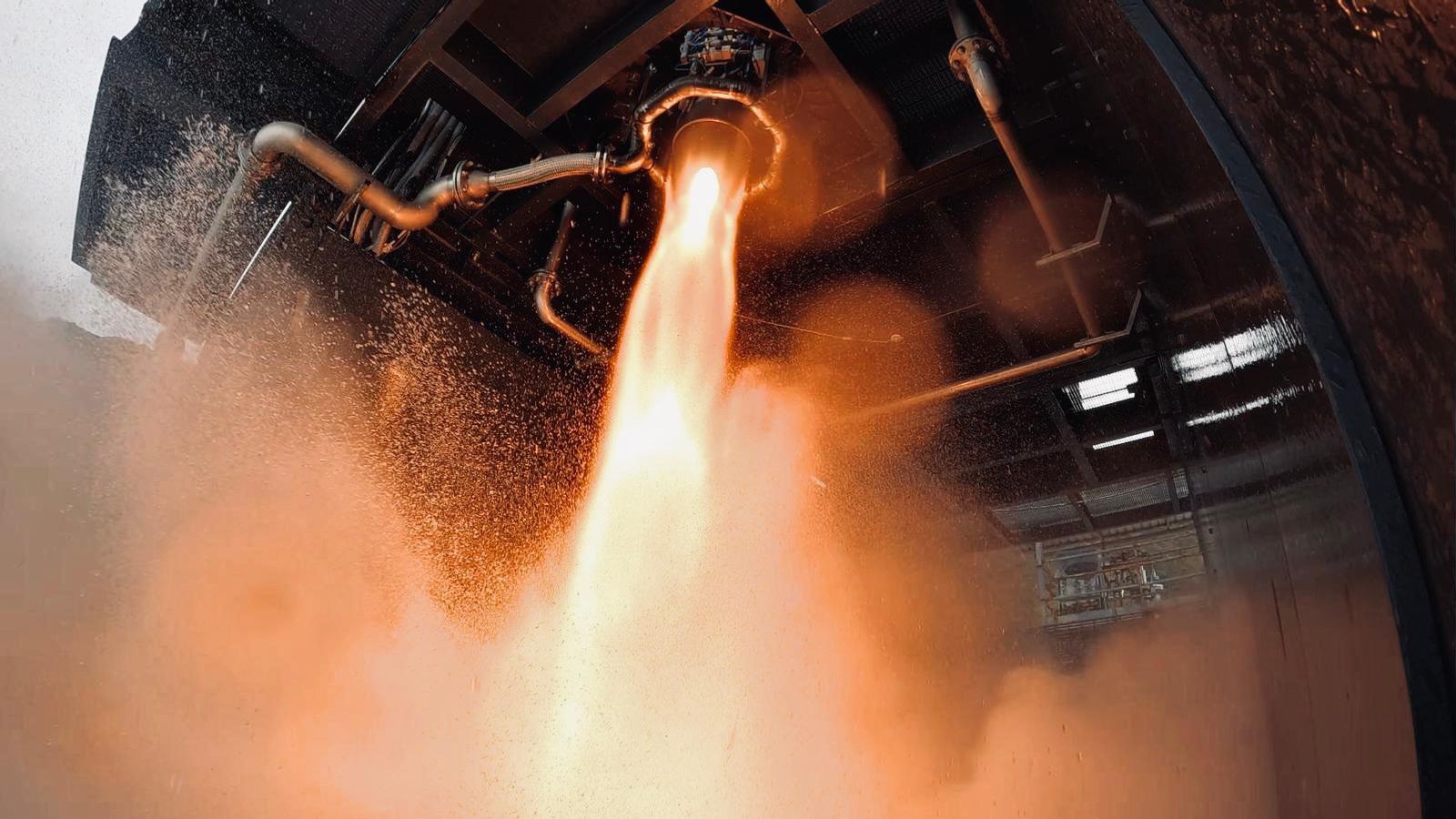New 3D-printed rocket engines are being tested at the largest UK facility of its kind ahead of a potential space launch.
Edinburgh-based Skyrora made them using its own Skyprint 2 machine for the first time, which the company says halves production time and reduces costs compared to previous designs.
The new model will be put through its paces at a test hub in Midlothian, on the site of a disused quarry. It is the biggest rocket testing facility in the UK.
Trials will take place every week over the summer, with each tasking the engine with running for 250 seconds – the same amount of time it would need to run in a real mission to reach orbit.
Skyrora chief executive and founder Volodymyr Levykin, originally from Ukraine, said the new engines brought the company closer towards its first commercial orbital launch.
He added: “With our purpose-built rocket manufacturing and testing facilities in Scotland, we are proud to be localising as much of the launch value chain as possible.
“The new engine technology developed by Skyrora’s engineers and the commitment to a sustainable design are a testament to the innovation taking place in the UK space sector.”
Two injured in Edinburgh flats fire as crews continue to tackle hotspots
Edinburgh school evacuated as fire crews battle blaze at block of flats
Public warned not to approach inmate who absconded from HMP Castle Huntly in Scotland
3D-printed engines ‘setting new standards’
Should the 3D-printed engine trials prove successful, the firm plans to scale up production before further tests of its three-stage launch vehicle, Skyrora XL – a 23-metre tall rocket with a payload capacity of 315kg.
The firm has already successfully tested the second and third stages, but the first stage – which provides the initial thrust to get the vehicle off the ground – will need to be trialled with the new engines.
Skyrora has received funding from the UK and EU space agencies. UK Space Agency boss Dr Paul Bate said its “innovative” 3D-printed engines are “setting new standards” in manufacturing efficiency and cost-effective design.
The company is aiming to carry out orbital launches from SaxaVord Spaceport in the Shetland Isles once it gets its licence from the Civil Aviation Authority. Its licence application was submitted in 2022.
Scott Hammond, deputy chief executive of the spaceport, told Sky News earlier this year he hoped the site would host multiple launches before the end of 2023.
Be the first to get Breaking News
Install the Sky News app for free
It comes after an orbital launch attempt from Newquay in January ended in failure. It was the first ever orbital mission from UK soil.
The company behind the mission, Virgin Orbit, has since gone bust.







